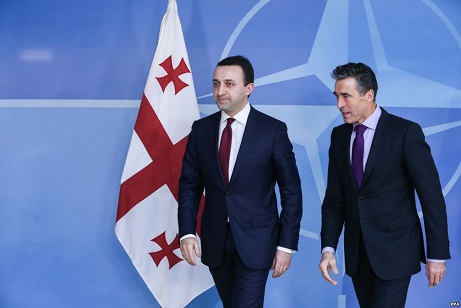NATO releases Wales Summit guide

The NATO Summit meeting in Wales comes at a critical time in the Alliance’s history – when the global security environment is becoming increasingly unpredictable and unstable, says NATO.
Two weeks before country leaders and heads of Governments assemble in Newport on 4-5 September, NATO released a Summit guide that noted the event would focus on the current situation in Ukraine and ending the combat mission in Afghanistan.
"The global security environment is becoming increasingly unpredictable and unstable - as Russia’s actions in Ukraine have shown - and when the Alliance will be completing its longest combat mission ever in Afghanistan,” the guide read.
The agenda noted the Russia-Ukraine crisis had shown the volatility of the security environment, which had accelerated the need for continued adaptation of the Alliance.
"Allied leaders will adopt a package of measures – the Readiness Action Plan – designed to make NATO forces more responsive, better trained and better equipped to respond to the changed and broader security environment in, or near, Europe so that the Alliance can meet challenges from wherever they may arise,” said NATO in the guide.
The fourth paragraph of the guide concentrated on deepening relations with partners and NATO’s Open Door policy.
In June NATO Secretary General Anders Fogh Rasmussen announced Georgia would be offered "a substantive package” at the Wales Summit to help the country move closer to NATO. Before this announcement it was expected Georgia would be granted a Membership Action Plan (MAP).
"NATO member countries will look to enhance support to partners’ efforts in developing their capacity to operate more closely with NATO Allies,” NATO said.
This Summit will principally focus on the following themes:
- NATO’s readiness to reinforce collective defence and investing in capabilities to ensure the Alliance remains ready to face any challenge;
- Demonstrating trans-Atlantic resolve and stressing the importance of appropriate levels of defence spending;
- Relations with Russia and stronger ties with Ukraine through increased cooperation;
- Deepening partnerships and maintaining NATO’s Open Door policy;
- Afghanistan and the completion of the International Security Assistance Force (ISAF) by the end of 2014.
This Summit will be the last event chaired by Rasmussen, who has served the Alliance since August 2009.
 Tweet
Tweet  Share
Share